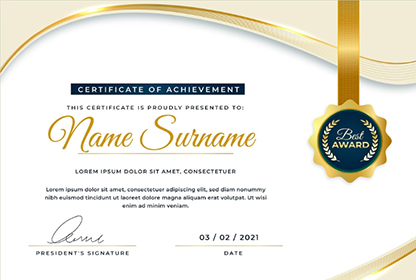Subclass 189 Skilled Independent Visa
Permanent Residency for Skilled Professionals in Australia
The Subclass 189 Skilled Independent Visa is a highly coveted and direct route to obtaining permanent residency in Australia, as it grants permanent residency to highly skilled professionals without the requirements of employer sponsorship, state sponsorship, or family sponsorship. For eligible professionals who achieve the required points score and meet the cut-off, it is a highly valuable permanent residency option, as it offers the opportunity to secure a permanent residency in an independent and versatile way.
Phoenix Immigration Consulting Services assists highly skilled professionals in every 189 visa step. From obtaining the skills assessment to the EOI submission and visa application, we ensure your skills and qualifications are presented optimally.
What Is the Subclass 189 Visa?
The 189 Visa is a permanent residency visa that is points tested in Australia and is also one of the permanent residency options for professionals whose qualifications are included in Australia's Skilled Occupation List (SOL). Unlike other visas, for this one you are not required to get sponsorship from a state or territory, an employer, or family. This visa is designed for skilled professionals who wish to have complete control over their immigration to Australia.
Visa 189 holders enjoy most of the rights and privileges of Australian citizens except voting. They may live permanently in Australia, start a business, work anywhere in the country, and include eligible family members. After residing in Australia for four years (with at least one as a permanent resident), you may apply for citizenship.
Who Can Apply for the 189 Visa?
Applicants must nominate a profession on the Skilled Occupation List and obtain a positive skills assessment from the relevant authority. They must also meet the minimum points threshold (65 or higher) and demonstrate English proficiency, relevant work experience, and other eligibility factors. Stronger profiles with higher scores are more likely to receive an invitation to apply.
Why Choose the 189 Visa?
The Subclass 189 Visa lets you live and work anywhere in Australia without needing a sponsor. This visa grants permanent resident benefits including access to Medicare, employment opportunities in any field, and unrestricted access to the labor market.
The visa extends the same benefits to your spouse, partner, and dependent children, enabling them to live, work, and study in Australia. After meeting residency requirements, you may apply for Australian citizenship.
How the Process Works
The Department of Home Affairs requires applicants to obtain a positive skills assessment for their nominated occupation from a designated authority (e.g., Engineers Australia, CPA Australia, VETASSESS, Australian Computer Society). Once skills assessment and English test results are obtained, applicants can calculate their points and submit an Expression of Interest (EOI) through SkillSelect.
If invited, applicants can submit their visa application along with supporting documents such as qualifications, work references, police clearances, medical reports, and proof of identity. Processing time typically ranges from three to nine months, depending on occupation and case complexity.
Required Documentation
Applicants generally need to provide:
- Valid passport
- Positive skills assessment
- Proof of English language ability
- Work references and employment history
- Police clearance certificates
- Medical examination results
- Marriage/birth certificates for dependents (if applicable)
At Phoenix Immigration, we create a personalized document checklist to ensure nothing is missed during your application.
How Phoenix Immigration Can Help
At Phoenix Immigration, we analyze your individual profile to determine if Subclass 189 is the best pathway or if alternatives like Subclass 190 (State Nominated Visa) or Subclass 491 (Regional Sponsored Visa) may be more suitable. We provide detailed points analysis, optimize your skills assessment, prepare your EOI, and lodge your visa application with accuracy.
We also guide you and your family through settlement in Australia, helping you adapt quickly to your new life.
FAQ
Let's explore your queries with their most accurate answers.
Applicants must demonstrate English proficiency by taking an approved test (e.g., IELTS, PTE, TOEFL). Higher scores can earn additional points, and applicants from certain countries may not need to prove proficiency if they meet specified criteria.
Yes, 189 Visa holders can live, work, and study anywhere in Australia. Unlike state-nominated visas, the 189 Visa does not restrict residency to a specific state or territory.










